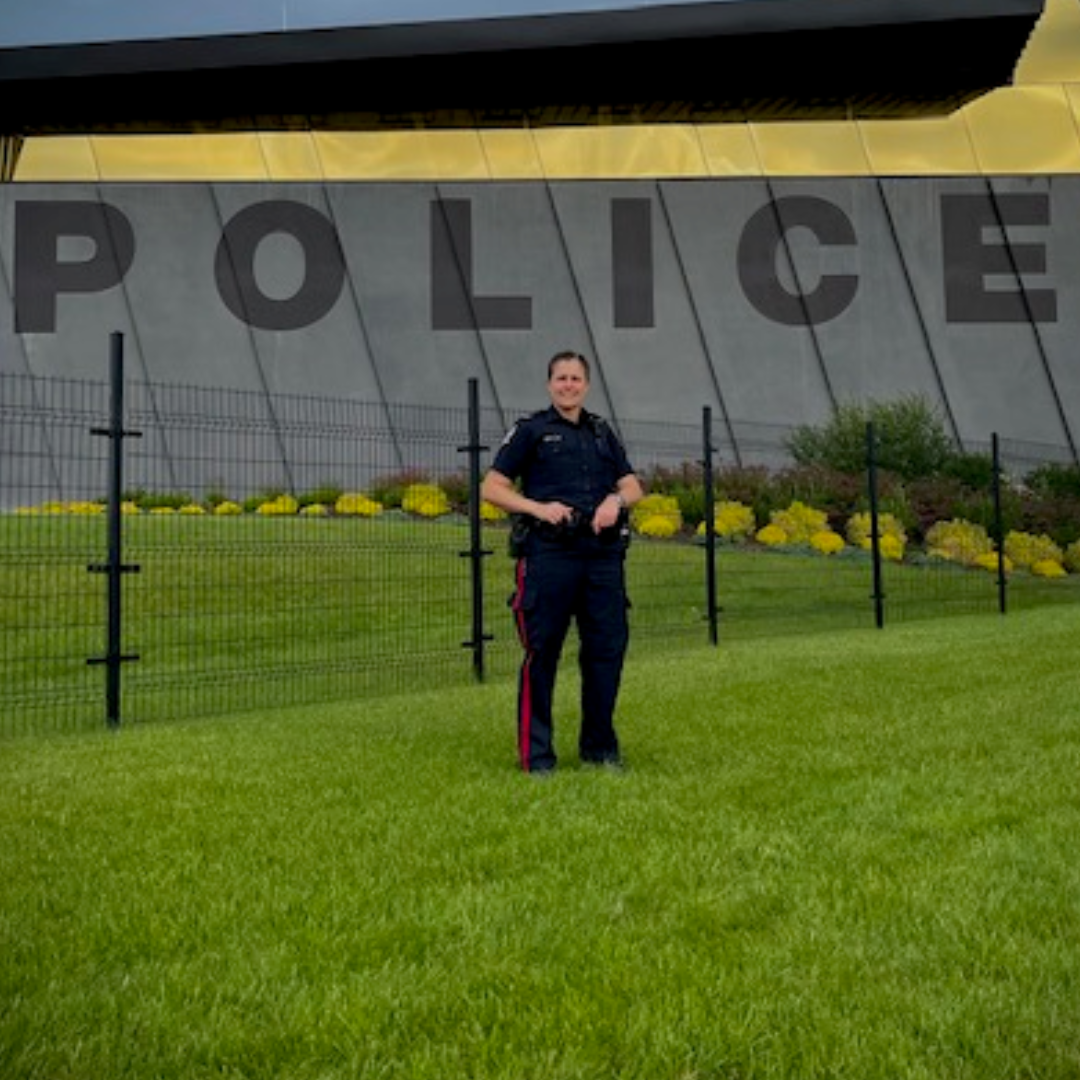School Resource Officers are community-based police officers with special training who help foster a safe and caring learning environment by prioritizing prevention and intervention over enforcement. Edmonton Catholic Schools currently has 13 SROs serving junior and senior high school students in 17 schools.
The SRO program is a community-based, collaborative partnership between the Edmonton Police Service and Edmonton Catholic Schools.
Who is my School Resource Officer?
Constable Amanda Hinks

Constable Amanda Hinks is the School Resource Officer (SRO) at Ben Calf Robe-St. Clare Catholic Elementary/Junior High School and St. Alphonsus Clare Catholic Elementary/Junior High School. She has been a member of the Edmonton Police Service since 2011. Throughout her career with EPS, Const. Hinks has worked at West Branch, Community & Operations Support Unit, and Northwest Front Counter. For the last four years, she has served as a School Resource Officer.
Const. Hinks is a dedicated SRO who fully engages with the school’s students and staff she works alongside. When she isn’t immersed in student-led activities or school community initiatives, she can be found greeting students as they arrive, presenting in classrooms, sharing a meal with students during lunch, or providing support to her school families.
Const. Hinks is also the coordinator of the EPS’ annual Youth Recruit Academy (YRA). The four-day program gives high school students across Edmonton an inside look at what it takes to fill the boots of a recruit constable. An excellent experience for those interested in pursuing or learning more about a career in policing.
If you ever have questions or wish to learn more about the SRO program, you can contact Const. Hinks by email at amanda.hinks.ta@ecsd.net.
What is the role of a School Resource Officer?
The primary responsibility of the School Resource Officer is to work in collaboration with school administration, the school’s multi-disciplinary team, and families to support student safety, growth, and well-being.
ECSD schools benefit from multi-disciplinary teams of which our SROs play an important part. SROs work with a variety of team members that exist within our schools including:
- Student Services Staff
- Grade Coordinators
- Emotional Behavior Specialists
- Family School Liaison Workers
- Psychologists/Clinical Social Workers
- Mental Health Therapists
School Resource Officers contribute to the safety and well-being of students in multiple ways:
- Positive Youth Engagement: School Resource Officers play an important role within the school setting, including organizing and participating in student-led or school activities, providing counselling, mediation and mentoring, and helping to connect students to school and community resources. School Resource Officers are available throughout the day, between classes, during lunch, and before-and-after school, connecting with students beyond the classroom.
- School Safety: SROs work to ensure the safety of students and staff, daily, from planning and executing lockdown drills throughout the school year, to making themselves available for individual or group discussions with students or staff on the topics of school safety, security, and violence. While they are in constant communication with school administrations and staff, they are also the first line of crime prevention in school, helping to deter crime-related incidents, such as bullying, graffiti and vandalism, harassment or stalking, theft, or use of weapons or threats. School safety is not just a response to crisis situations. It is the daily impact of having caring adults who are responsive to a broad range of student and family concerns and how they can support them.
- Resource: SROs offer additional resources to students and families. They can answer questions about law enforcement or assist them to get the resources that they need.
- Education: Working cooperatively with school administrators, staff, students, families, and the community, SROs proactively identify and address school concerns or problems through structured class presentations. These awareness and education sessions are created on a variety of topics (e.g. drug use, healthy relationships and safe driving) and are all tailored to fit the student population based on direct experience of the SRO within the school setting.
- Diversion: With their knowledge of the criminal justice system, SROs collaborate with school administration to come up with alternative diversion measures for situations that otherwise may have involved the criminal justice system. This could be anything from completing restorative work around the school, working out with the resource officer, or assisting teachers with extra-curricular activities.
